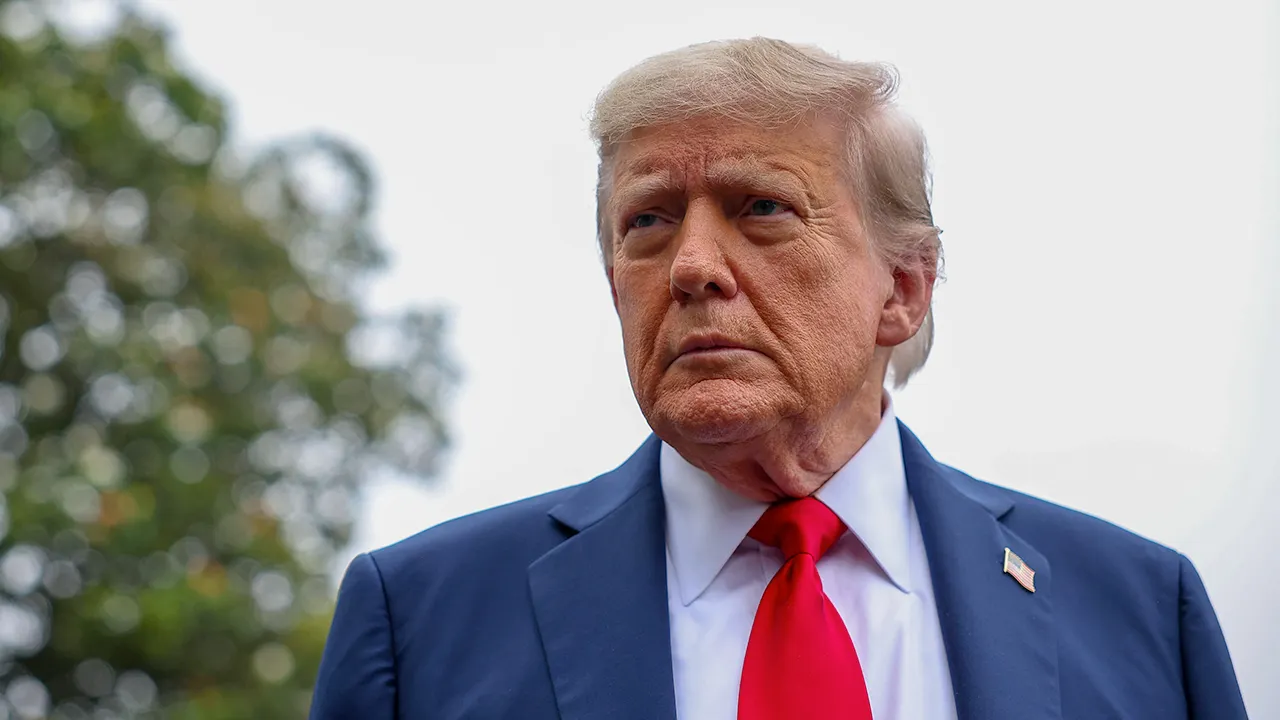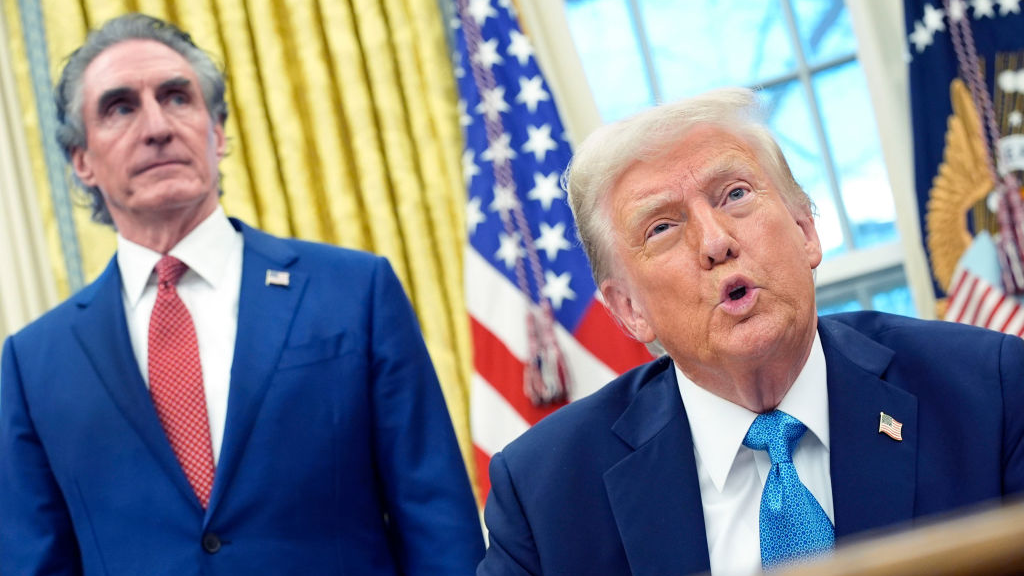A covert Israeli drone base secretly installed in the heart of Iran. More than 100 Ukrainian remote-controlled military aircraft smuggled deep into Russia, concealed under wooden sheds. Israel and Ukraine have activated these assets to devastating effect over the past year, decimating the Iranian military command and crippling Russia’s Air Force—all with a flip of a switch.
The stunningly successful asymmetric attacks have some experts wondering: Could China, America’s “number one geopolitical foe” in the words of Secretary of State Marco Rubio, be laying the groundwork to do the same in the United States?
“Mossad did this in secret. The Chinese Communist Party is doing it openly,” warned Michael Sobolik, a veteran China analyst with the Hudson Institute. “The mullahs in Iran had no idea. Putin had no idea. But we know, and we have no excuse. Do we have the political will and the self respect to make sure we can survive in a crisis?”
Several China experts told the Washington Free Beacon that the United States has left the door wide open for its communist adversary to establish a foothold in the country. Top of mind for many is the Chinese-owned farmland adjacent to at least 19 military bases across the United States, which Craig Singleton, a senior China fellow at the Foundation for Defense of Democracies, described as the elephant in the room following Israel’s covert strikes against Iran.
“Letting firms or individuals with CCP ties buy property next to U.S. bases hands Beijing the hardest part of that playbook—the forward staging area—no smuggling required,” Singleton told the Free Beacon. “A prudent policy starts with the assumption that a determined, tech-savvy adversary will exploit every acre it controls.”
The threats, however, go far beyond Chinese-owned farmland. Former FBI director Christopher Wray warned in a speech last April that China has been laying the groundwork to “physically wreak havoc on our critical infrastructure at a time of its choosing.”
That includes America’s shipping ports, which are almost entirely reliant on automated cranes manufactured by ZPMC, a Chinese state-owned military contractor. A joint congressional investigation in 2024 discovered unauthorized cellular modems embedded in some of those cranes, potentially giving China the ability to remotely shut down U.S. ports and wreak havoc on America’s food chains and manufacturing capabilities.
In a February 2024 executive order, then-president Joe Biden earmarked $20 billion to replace the ZPMC cranes. But at least one major port didn’t get the memo. Days after Biden signed the order, the Port of Virginia told local news outlets that it was still expecting to receive at least eight new ZPMC cranes by August 2025. It’s unclear if the port is still expecting those deliveries. The Port of Virginia did not return requests for comment.
U.S. energy officials have also discovered rogue communication devices in Chinese-made power inverters that connect solar panels to America’s power grids. Those devices may give China the ability to “physically destroy the grid” with the flip of a switch, the officials told Reuters in May.
And drones manufactured by DJI, a sanctioned “Chinese Military Company,” dominate American airspace, raising concerns in the U.S. intelligence community that it surreptitiously collects and transmits sensitive surveillance data back to the CCP.
Such surveillance, in addition to China’s ability to cripple domestic energy systems and ports, could make a potential drone attack on U.S. soil more effective. According to experts, it’s also part of a broader strategy.
“China is executing on a strategy to have industrial military co-locations within the United States that would give them a significant asymmetric advantage in a conflict, like what the Ukrainians did when they took out those Russian jets on the ground,” said Michael Lucci, the founder, chairman, and CEO of the China watchdog group State Armor. “It’s such an obvious issue. Our allies are doing this to our enemies. Why are we not getting prepared ourselves?”
Sobolik said the solution would be similar to what the federal government did in 2022 when it banned China’s Huawei Technologies from selling any new telecommunications equipment in the United States, but at a much wider scale. He called for policy makers to institute more bans on Chinese tech, including the devices currently embedded in solar panels connected to the power grid and the automated cranes running America’s major ports.
“We’re going to have to rip it out and replace it,” Sobolik said. “This is going to be expensive. That bill is coming, and it’s a freaking big bill. But if we don’t pay it, China is going to be able to mess with us in a crisis, and it’s going to be unbelievably painful.”
House Homeland Security Committee chairman Rep. Mark Green (R., Tenn.) said it was time for Congress to act aggressively on the threat from China.
“For decades, the CCP has been methodically undermining U.S. sovereignty by infiltrating our academic and research institutions, orchestrating state-sponsored cyberattacks on U.S. critical infrastructure, controlling key supply chains for technology and critical minerals, and building surveillance infrastructure just 90 miles off our coastline in Cuba. Not to mention the nearly 40,000 Chinese nationals that the Biden administration let enter the country illegally in Fiscal Year 2024 alone,” Green said. “It is imperative for Congress to show that we take this threat seriously.”
Several Republican bills to address the issue of Chinese ownership of farmland have languished in the House and Senate for years. That includes the No American Land for Communist China Act, which would block the Chinese government from purchasing land near federally owned land, and the Prohibition of Agricultural Land for the People’s Republic of China Act, which would prohibit Chinese government entities from buying up any agricultural land whatsoever.
Those bills have yet to receive a floor vote in either chamber of Congress. However, a bill that makes the secretary of agriculture a permanent member on the Committee on Foreign Investment in the United States passed on the House floor last week.
A full accounting of all the land China and its affiliated companies own in the United States is also somewhat of a mystery. The Government Accountability Office chastised the Biden administration in a January 2024 report for failing to adequately track foreign investments in agricultural land, including the land Chinese companies now own next to military bases across the country.
Some states have picked up the federal government’s slack on the issue of Chinese land ownership. Roughly half have passed bills restricting foreign land purchases, according to the pro-China nonprofit Committee of 100.
Still, some Democratic states aren’t on board. Arizona governor Katie Hobbs (D.) vetoed a bill on June 2 that would have prohibited the Chinese government and its state-owned enterprises from acquiring land in her state. Michigan governor Gretchen Whitmer (D.) has invited, welcomed, and subsidized projects involving companies with direct ties to the CCP. One of them, an electric vehicle plant Ford is developing with Chinese battery firm CATL, is situated 12 miles away from two military bases: Fort Custer, a U.S. military armory and training facility, and Battle Creek Air National Guard Base, the home of U.S. military drone training exercises.
“If you consider the drones that are being flown hundreds of miles from Ukraine to Russia and Israel to Iran,” said former U.S. ambassador to Fiji, Kiribati, Nauru, Tonga, and Tuvalu Joseph Cella, who noted the Department of Defense designated CATL a “Chinese Military Company” in January, “12 miles is nothing.”
Read the full article here










